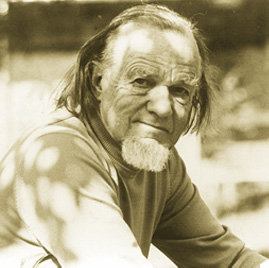The narrative that the American Right tells about itself springs from the careful, groundbreaking historical work of George H. Nash. Unfortunately, as Dan McCarthy points out in a review of Nash’s Reappraising the Right, it’s a narrative that fits the pre-1976 conservative intellectual movement much better than the politicized, institutionalized conservatism that arose with Ronald Reagan.
We need more of these historically grounded challenges to the Nash narrative if we are really to understand what has happened to American conservatism in the last sixty years — and I mean no disrespect to Nash in saying that.











Could it be that what “unites” is simply what they all oppose? Reagan ran on “smaller government,” lower taxes, and free trade. But his party could never agree on what part of gov’t to cut, but only on what part to grow (defense). “Conservative” lobbies were just as much beneficiaries of gov’t subsidies as were everybody else, and in a fragile coalition, everybody’s turf gets protected. Hence we got larger gov’t, free trade, and tax shifting rather than tax cuts.
Richard Vigurie complains that conservatives run and win, but do not rule. But what Vigurie doesn’t say is that if conservatives stated what they wanted to cut, they would neither run nor rule, because their corporate sponsors would drop them.
One of the real tensions in American conservatism has always been the degree to which it is political. I think that Jeremy means what has happened to American conservatism in the last THIRTY-NINE years, not sixty. I remember well feeling my heart sink into my shoes at a dinner of a great conservative organization in Chicago in early 1981 when the general exuberance in the room said, “Well we’ve got it now–power, that is, and everything will be all right.”
George Nash’s narrative is still the right narrative. If conservatism means anything, it is that politics is a reflection of first principles, and not the driver of first principles. Mr. Reagan was not a conservative–and that’s all right, he was a good man who was also on balance a pretty good President. But when so many of my conservative friends put all their eggs into the political basket, I thought it was entirely predictable that neocons and Straussians would assume the positions once held by real conservatives.
I read the McCarthy review of Nash’s book. Its problem is that it assumes a stance usually occupied by progressives: “conservatism is outmoded.” Are there permanent things or are there not?
Comments are closed.